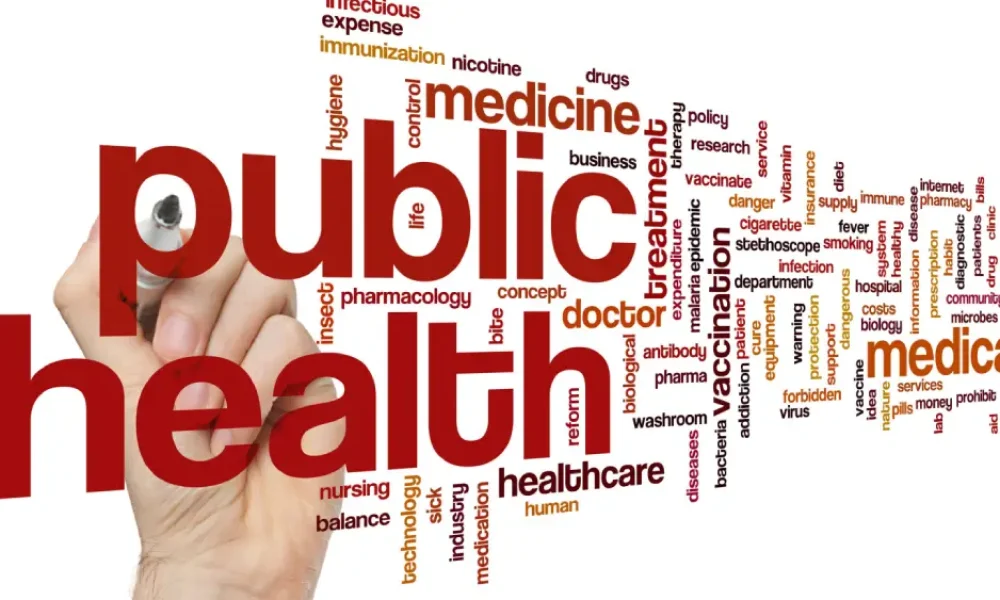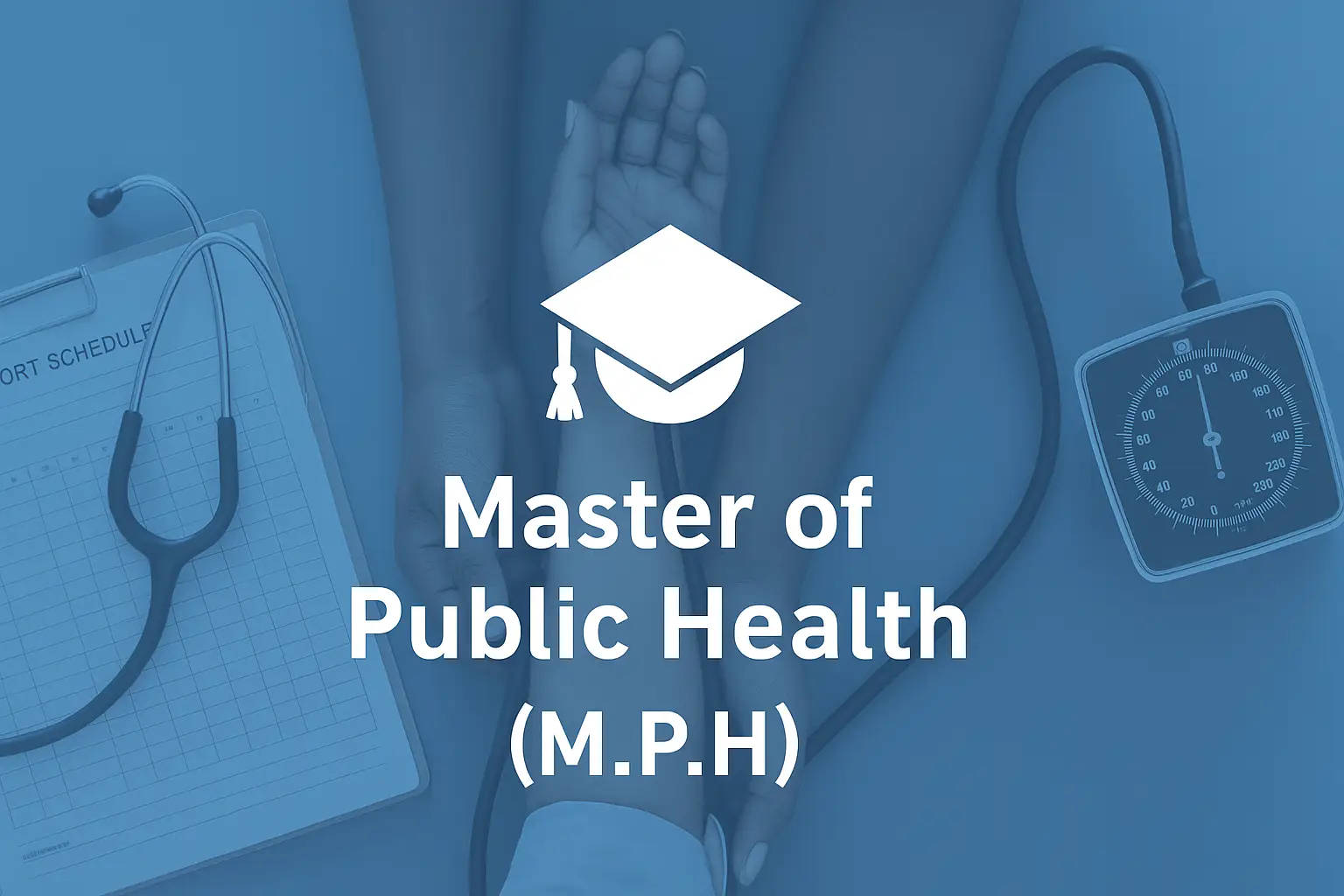The public health sector is one of the most important sectors of a country as it is directly related to the healthcare system, fair distribution of medical services, and achieving community health goals. The Master of Public Health (MPH) degree equips students to understand key public health issues, identify systemic challenges, and propose effective solutions for improvement.
Public health and social well-being are the two most important principles set out in the preamble of the Constitution by the WHO. The global concern for public health further intensified during the COVID-19 era, and it was agreed that reorganised efforts are required to prevent such outcomes in the future.
Explain the Meaning of Public Health
Public health concerns itself with the overall health of a community by managing resources, spreading awareness, and preventing major outbreaks of diseases. They are also crucial in sending adequate relief and vaccination drives in emergencies. By promoting public health, the development of communities and societies can be achieved, which is also one of the primary focuses of a public health course.
The art and science of public health are quite intricate and interdisciplinary, and the system requires manual management conducted in layers. Assessing the public health requirements is not a matter of joke, and there is a long process for ensuring the system works efficiently. The expected growth in community health sectors is expected to rise over 13% by the end of 2030, according to the Bureau of Labour Statistics (LBS).
What is the Nature of the Master of Public Health Study?
Taking into account its interdisciplinary nature, the MPH degree is both rigorous and rewarding, attracting individuals who are driven to create meaningful change in public health and well-being. The field encompasses a wide range of practices, including disease prevention, personal hygiene, health promotion, and the enhancement of physical and mental well-being.
- History, Principles, and Practice of Public Health
- Human Development, Human Rights, and Health
- Health Systems
- Epidemiology and Biostatistics
- Public Health Nutrition
- Management for Health
- Social, Behavioral, and Structural Determinants of Health
- Research Methods in Public Health
- Introduction to Infectious Diseases
- Leadership & Communication
- Health Policy and Practice
- Monitoring and Evaluation in Public Health
- Introduction to Chronic Diseases
| Subjects/Modules | Description |
| History, Principles, and Practice of Public Health | Foundational knowledge and ethics in public health |
| Epidemiology and Biostatistics | Data analysis and disease pattern study |
| Public Health Nutrition | Nutrition planning and health improvement through diet |
| Health Systems | Understanding health infrastructure and policy frameworks |
| Social, Behavioural, and Structural Determinants | Societal influences on public health |
| Research Methods in Public Health | Conducting scientific research and surveys |
| Leadership & Communication | Influencing policies and promoting public health awareness |
| Infectious & Chronic Diseases | Identification, prevention, and control methods |
| Management for Health | Budgeting, planning, and leading health initiatives |
Explore Jindal School of Public Health and Human Development
Public Health and Human Development Courses

Difference Between Public Healthcare & Private Healthcare
In recent years, the difference between the public health and private health sectors has become glaringly clear. The difference is clear in several segments, starting from the cost and services to infrastructure and availability of resources and adequate medical staff, not just the basic definition. Here is an outline of the differences.
| Public Health Sectors | Private Health Sectors | |
| 1. | Essentially designed to serve the public and is usually run by the government. | Run by private entities, the services are usually taken up by a limited proportion of the population. |
| 2 | On the other hand, Public Health Sectors, especially in developing countrie,s have a mostly bad reputation for not providing quality services to their patients. | This sector is known for its robust approach and incredible services. |
| 3 | As a government-run organisation, these sectors usually have a low cost of service, allowing them to provide treatment to the underprivileged sections of society. | The over-the-top services, coupled with state-of-the-art infrastructure and technology, can charge a significantly higher amount while they provide top-quality healthcare services. |
| 4 | Public Health Sectors are often criticised for their lack of available resources, including technology, medication, and adequate healthcare staff and doctors, while the number of patients visiting these facilities is usually enormously high. | The doctor-to-patient ratio is favourable. They are run independently and tend to provide holistic services owing to their higher charges. |
Both health sectors have a similar purpose but they have different approaches and often different outcomes. The goal for the Public Health sector is to bridge the gap and make healthcare accessible to a greater population.
Public Health Skills for a Professional Approach
The MPH degree is related to healthcare systems to churn out healthcare workers. Some of the skills essential for becoming an effective public health professional are as follows:
- Analysing large datasets requires strong analytical skills. In public health, data analytics plays a key role in planning and implementing impactful policies.
- Effective communication is essential to ensure these policies are understood and adopted.
- Improving healthcare systems also demands financial planning and efficient resource management to direct support where it’s needed most.
They may also need a significant amount of leadership skills to lobby other members into agreeing to suggestions for the betterment of society. Above all, they must have the intention of making a change.
7 Undeniable Reasons to Get a Master of Public Health (MPH) Degree
As a one-year Master’s programme, the course packs in a significant amount of content. Completing the course gives unmatched insight and a series of skillsets essential to be a healthcare professional. Here are some undeniable reasons why people choose an MPH degree.
- Job Security: One of the main reasons to pursue an MPH is the strong job security it offers after completion.
- Advanced Learning: Ideal for students interested in understanding health systems and how to make them function fairly.
- Meaningful Impact: As a public health professional, you can drive real change and contribute to the well-being of communities.
- Equity Over Equality: Public health focuses on equity—allocating resources based on specific needs to ensure fairness.
- Research Opportunities: Ample research avenues in public health offer strong academic recognition and career growth.
- Global Scope: The programme offers a global perspective, enhancing international job prospects.
- Cultural Exposure: Global opportunities also allow students to travel, gain diverse experiences, and broaden their worldview.
The MPH degree gives you jobs like public health consultant, public health educator, public health administrator, clinical research coordinator, epidemiologist, community health professional, and many more.





